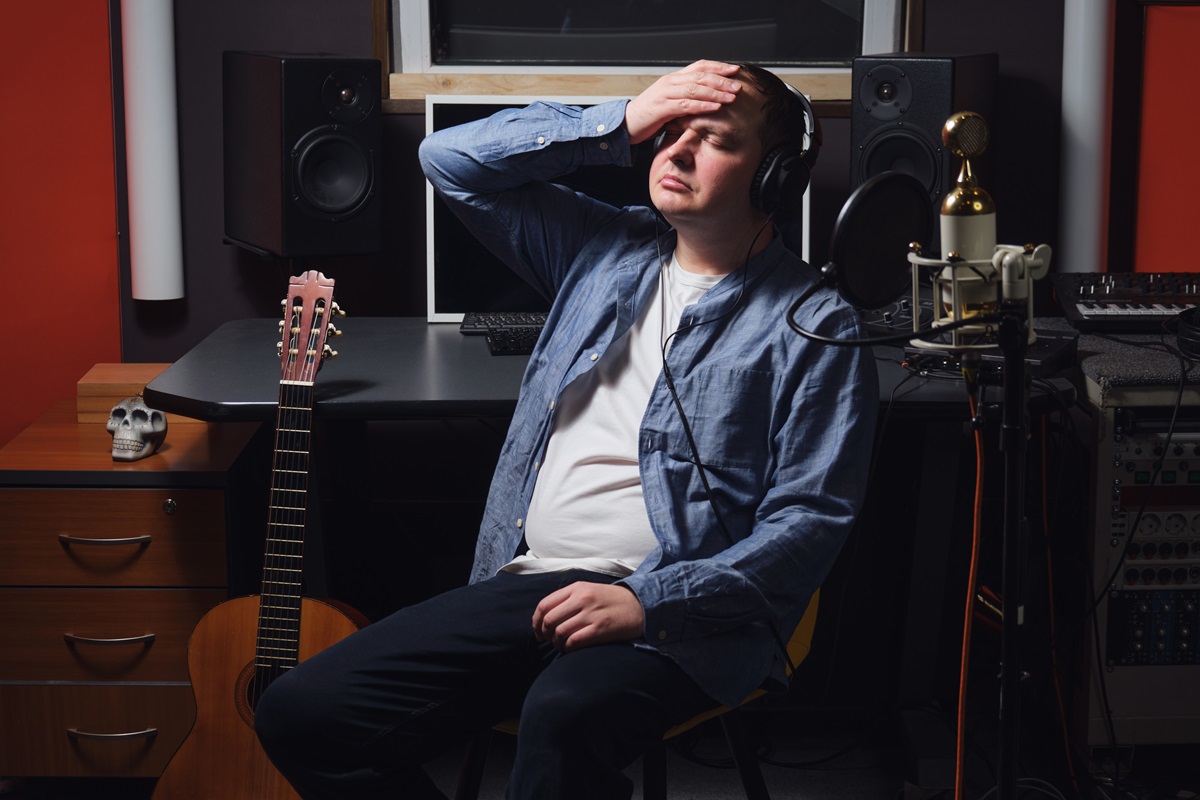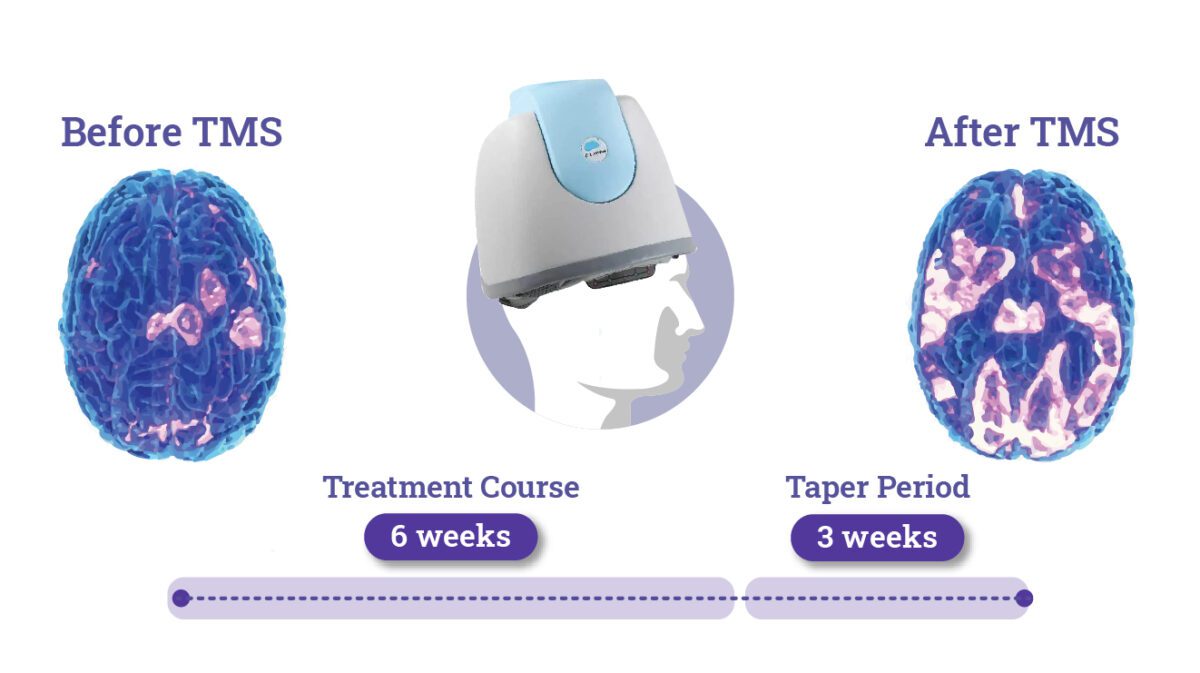What do you think of this article?
By Dr. David Woo - Published on September 16, 2024
Last updated on January 6, 2025

For creative professionals living in New York, the vibrant city offers endless inspiration and opportunities. However, many artists, writers, designers, and other creatives struggle to realize their full potential due to mental health challenges. Artist depression, while a well-trodden cliche in pop culture, can be a real and significant barrier to maintaining creativity, productivity, and work-life balance. At Madison Avenue TMS & Psychiatry, we have a deep understanding of how depression affects creative professionals and offer effective treatments like medication management programs and transcranial magnetic stimulation (TMS) designed to help you reclaim your passion and get back to doing what you love.
Jump to:
- Understanding Artist Depression: Misconceptions And Reality
- Creative Depression: The Struggles Of Creative Work
- Treatments For Artist Depression
- Depression Clinic In New York
Understanding Artist Depression: Misconceptions And Reality
Creative professionals often face a unique set of challenges that can make them more susceptible to depression, anxiety, or both at once (anxious depression). The question of whether creativity is linked to an increased prevalence of depression and the nature of any such link is an ongoing subject of research (1).
Many renowned artists and writers, past and present, have struggled with mental health issues, including highly beloved figures such as Robin Williams, Slyvia Plath, Bruce Springsteen, Lady Gaga, Vincent van Gogh, Angelina Jolie, and many more. However, it’s a dangerous myth to romanticize the connection between creativity and suffering. The stereotype of the “mad genius” or “tortured artist,” pervasive in popular culture, from music to movies, has perpetuated the misconception that suffering is a necessary component of creativity.
However, this reductive misconception overlooks the severe impact that depression can have on an artist’s ability to work and thrive. Additionally, studies have shown little variation in the prevalence of mood disorders among more or less creative people (2). In short—don’t feel like you have to suffer for your art. In fact, depression may well be holding you back from achieving creative goals.
While it is certainly possible for people to gain artistic inspiration from depressive experiences, depression can just as easily stifle creativity by impairing cognitive functions such as memory, concentration, and problem-solving. When experiencing depression, many creatives find it challenging to generate new ideas, complete projects, or even start work. This can lead to a vicious cycle where the inability to create exacerbates feelings of worthlessness and despair.
On the other hand, recent research has actually shown a positive correlation between everyday creativity and mental/emotional well-being and a higher level of psychological resilience, suggesting that creativity flows more freely when the artist is in a better state of mental health (3, 4). When mental health is prioritized, creative professionals are better equipped to produce meaningful work, maintain healthy relationships, and achieve a sustainable work-life balance.
Creative Depression: The Struggles Of Creative Work

“Creative depression” is not just about feeling sad or uninspired. It can manifest as a deep, pervasive sense of hopelessness that drains the joy out of the creative process. The pressure to produce original work, meet deadlines, and maintain a public persona can lead to overwhelming “creative stress” and “artist stress.” These pressures can, in turn, fuel the onset of depression or exacerbate existing mental health issues.
Depression in creative professionals can also lead to social withdrawal, sleep disturbances, and substance abuse as coping mechanisms. These behaviors further isolate individuals and create additional barriers to seeking help. It’s essential to recognize that creative depression is a serious condition that requires professional treatment rather than being seen as an inevitable part of the creative process.
How To Lighten Depression
At Madison Avenue TMS & Psychiatry, we understand the unique challenges that creative professionals face. Our patients have included artists, writers, dancers, actors, designers, and other creators pursuing their ambitions in the competitive creative scene in New York. We offer a range of treatments designed to help you manage your mental health, overcome depression, and find fulfillment in pursuing your creative dreams.
Medication Management
For many individuals, medication can be an effective tool in managing depression. However, you may have heard that certain classes of antidepressants dampen one’s emotions and creativity. Again, the reality is much more nuanced—for every individual who complains of feeling emotionally “numbed,” another credits their medications for freeing them up to be creative again.
The truth is that different people respond to different drugs in different ways. That’s why we offer medication management services as part of depression treatment. Our experienced professionals will work with you to develop a personalized medication plan tailored to your specific needs, with consultations to assess effectiveness and monitor for undesirable side effects. By carefully monitoring your progress and adjusting treatments as necessary, we can help you find relief from depressive symptoms and regain your creative energy.
Telehealth Consultations
We know that creative professionals in New York often have busy, unpredictable schedules. Our telehealth services provide a convenient way to access mental health care from the comfort of your home or studio. Whether you’re managing deadlines or navigating the city’s fast-paced lifestyle, you can access consistent, high-quality care via video consultations.
Transcranial Magnetic Stimulation (TMS)

TMS is a non-invasive treatment for depression that uses magnetic fields to stimulate nerve cells in the brain through a helmet-like device. At Madison Avenue TMS & Psychiatry, we specialize in TMS therapy, helping creative professionals reduce depressive symptoms and improve cognitive function.
TMS is:
- Drug-free: This innovative drug-free depression therapy is particularly effective for individuals who have not responded well to traditional treatments like medication and wish to avoid pharmacological side effects or drug interactions.
- Targeted: TMS precisely targets the areas of the brain involved in mood regulation. TMS can help you regain your focus, motivation, and creative spark without affecting other brain functions.
- Effective: TMS effectiveness for treating depression is well-documented and long-lasting. The therapy is FDA-approved for treatment-resistant depression and obsessive-compulsive disorder.
- Well-tolerated: TMS sessions last around 30 minutes (daily sessions are typical), after which the patient can immediately go about their lives. TMS side effects are rare and typically mild in nature, such as a minor headache or scalp irritation that can be treated with over-the-counter painkillers.
Reclaim Your Creativity
Depression doesn’t have to define your creative journey. At Madison Avenue TMS & Psychiatry, we’re here to support you in overcoming artist depression, creative depression, and the challenges of creative stress. Our compassionate and experienced team is dedicated to helping you achieve mental wellness and rediscover your passion for your work.
If you’re ready to take the first step toward healing, contact Madison Avenue TMS & Psychiatry at (212) 731-2033 or book a consultation via our website. Together, we can help you overcome depression and reconnect with your creativity.
More Resources:
- TMS And Psychedelics
- College Stress And Depression
- A Safe Space For Healing: The Role Of Supportive LGBTQ+ Mental Health Care
Sources:
- Forgeard, M., Corcoran, E., Beard, C., & Björgvinsson, T. (2020). Relationships between depression, self-reflection, brooding, and creative thinking in a psychiatric sample. Psychology of Aesthetics, Creativity, and the Arts, 14(3), 325–333. Link. Accessed August 16, 2024.
- Taylor, C. L. Creativity and Mood Disorder: A Systematic Review and Meta-Analysis. Perspectives on Psychological Science. 2017. Link. Accessed August 16, 2024.
- Silvia, P. J., & Kimbrel, N. A. A dimensional analysis of creativity and mental illness: Do anxiety and depression symptoms predict creative cognition, creative accomplishments, and creative self-concepts? Psychology of Aesthetics, Creativity, and the Arts. 2010;4(1), 2–10. Link. Accessed August 16, 2024.
- Acar, S., Tadik, H., Myers, D., & Uysal, R. Creativity and Well-being: A Meta-analysis. The Journal of Creative Behavior.2021;55(3), 738-751. Link. Accessed August 16, 2024.
- Xu, Y., Shao, J., Zeng, W., Wu, X., Huang, D., Zeng, Y., & Wu, J. Depression and Creativity During COVID-19: Psychological Resilience as a Mediator and Deliberate Rumination as a Moderator. Frontiers in Psychology. 2021;12, 665961. Link. Accessed August 16, 2024.
Dr. David Woo is the owner and head clinical psychiatrist at Madison Avenue TMS and Therapy in New York City. Dr. Woo has been seeing patients in private practice since 2002, always with the goals of combining evidence-based medicine with psychodynamic psychotherapy and collaborating with other mental health professionals to ensure the best possible outcomes for his patients. He has been certified to administer TMS at his practice since 2017. His greatest clinical interests include helping patients suffering from depression, anxiety, and obsessive compulsive disorder.
Follow Dr. Woo On









